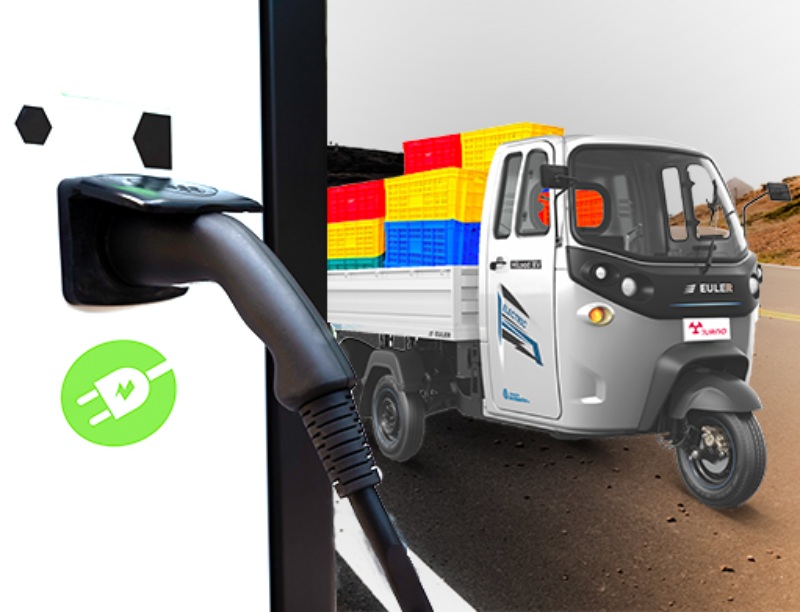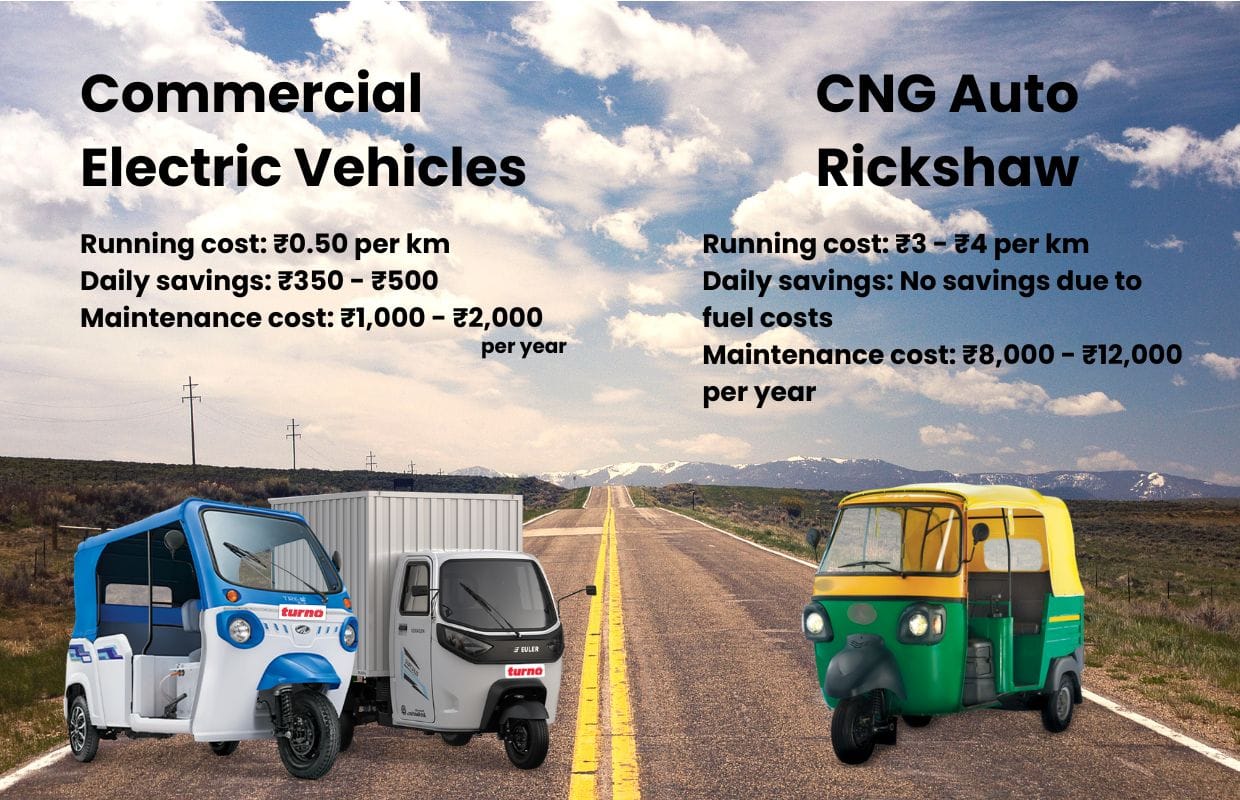In many developing nations, auto-rickshaws are a common form of transportation and offer a practical and affordable means for people to travel in the crowded cities. The high emissions, noise pollution, and poor fuel economy of these three-wheeled vehicles, however, are known to have a negative impact on the environment and people's health. Many auto-rickshaw owners are turning to electric conversion as a solution to these problems. Converting gas-powered auto-rickshaws to electric ones can, fortunately, address these problems. In this blog, we will examine the many advantages of switching from gas-powered to electric auto-rickshaws, including cheaper operating costs, better performance, a less environmental effect, and access to government subsidies.

Why you should convert your Gas-Powered Auto-Rickshaw to an Electric one?
Here are some benefits of switching to an Electric Auto-Rickshaw:
Environmental Advantages
High quantities of hazardous pollutants, including as carbon dioxide, nitrogen oxides, and particulate matter, are commonly produced by gas-powered auto-rickshaws. These emissions contribute to air pollution, which has been associated with a variety of health conditions, such as heart disease and respiratory disorders. By switching to electric, you may drastically lower the carbon impact of your automobile and help create a cleaner, safer world.
Reduced Operational Costs
Auto-rickshaws that run on petrol need to be refuelled frequently, which can be expensive. Additionally, because petrol engines have more moving parts than electric motors, whose maintenance costs are lower. By switching to electric, you may dramatically save your running costs because electric motors require less maintenance and power is less expensive than petrol.
Improved Performance
Electric load vehicles offer several advantages over gas engines, including better torque and acceleration. This means that electric auto-rickshaws can handle steep inclines and heavy loads more efficiently than gas-powered ones. Moreover, electric motors are quieter than gas engines, which reduces noise pollution and improves the comfort of passengers.
Longer Lifespan
Gas-powered auto-rickshaws have a limited lifespan due to the wear and tear of their internal combustion engines. Electric motors, on the other hand, have fewer moving parts and are less prone to breakdowns. This means that electric auto-rickshaws have a longer lifespan, which translates into better returns on investment for their owners.
Government Incentives
Many governments around the world offer incentives to encourage the adoption of electric vehicles. These incentives include tax credits, subsidies, and reduced registration fees. By converting to electric, auto-rickshaw owners can take advantage of these incentives and save money.
Increased Revenue Opportunities
In some countries, electric auto-rickshaws may be eligible to operate as part of ride-sharing or e-hailing services, which can lead to increased revenue opportunities for owners. These services may offer higher fares, reduced maintenance costs, and more flexible work schedules for drivers. By converting to electric, auto-rickshaw owners can tap into these opportunities and improve their bottom line.
Improved Public Perception
Contributing to a Sustainable Future
Electric vehicles are often associated with innovation, modernity, and a commitment to sustainability. By converting to electric, auto-rickshaw owners can improve their public perception and attract more customers who value environmentally conscious transportation options. This can lead to increased customer loyalty and higher profits in the long run.
In-line with regulations
Stricter laws governing emissions and noise pollution are being implemented in several cities and nations worldwide. Auto-rickshaws that run on petrol may soon become outdated or face severe penalties for not complying. Auto-rickshaw owners may keep ahead of regulatory changes and avoid steep fines by switching to electric.
Infrastructure for Charging is Available
Infrastructure for charging electric vehicles is becoming more widespread as their popularity rises. Public charging stations are being built in a lot of towns and nations, which might make it simpler for auto-rickshaw proprietors to power their cars at the office. Auto-rickshaw owners may benefit from this infrastructure and lessen their range anxiety by switching to electric vehicles.
Converting gas-powered auto-rickshaws to electric ones is a step towards a more sustainable future. Electric load vehicles offer a pathway to reducing greenhouse gas emissions, improving air quality, and mitigating the impacts of climate change. By converting to electric, auto-rickshaw owners can be part of this global effort and contribute to a better future for all.
Summary
Here is a table summarizing the benefits of converting gas-powered auto-rickshaws to electric ones:
Conclusion:
In conclusion, the benefits of converting gas-powered auto-rickshaws to electric are numerous and significant. It offers environmental benefits, lower operating costs, improved performance, longer lifespan, and access to government incentives. With these benefits in mind, auto-rickshaw owners should seriously consider making the switch to electric. Not only will they be contributing to a cleaner and healthier environment, but they will also be saving money in the long run. With these benefits in mind, auto-rickshaw owners should seriously consider making the switch to electric and help drive a more sustainable future.
Make the process of purchasing an electric commercial vehicle simpler by contacting Turno. Visit today!




